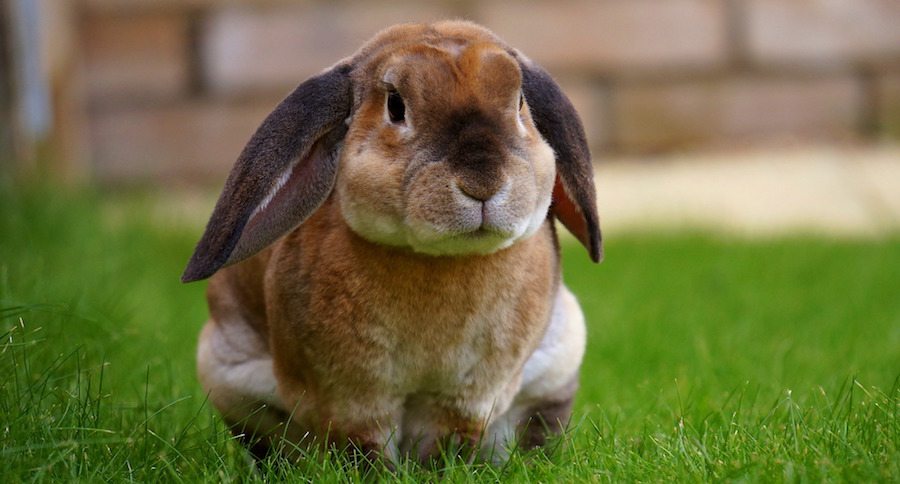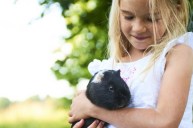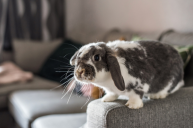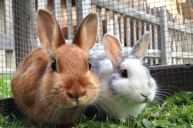Small, soft, cute...who doesn't love a bunny?
If you're thinking your household could benefit from some wiggly-nosed, cotton-tailed cuteness, hold on a sec. Before adding a pet of any species to your family, it's important to do your research first, and rabbits are no exception.
Each year, thousands of pet rabbits are abandoned at shelters and rescues because people purchased or adopted them impulsively without first taking the time to learn about the responsibilities of rabbit ownership and realized after the fact that their rabbits required more time and energy than they were willing or able to provide.
If you're thinking of adopting a rabbit, here are eight common myths floating around about their care requirements and suitability as pets.
Myth #1: Rabbits are low maintenance.
False! Rabbits are NOT low maintenance pets. Their housing needs to be cleaned daily, and they require a steady diet of fresh vegetables ("salad").
In addition, rabbits are predisposed to a handful of health issues and need daily monitoring and regular veterinary care.

Myth #2: Rabbits are big cuddlers.
This is not necessarily true. While some rabbits do enjoy regular handling and interaction, many do not.
A rabbit that is mishandled or scared will try to protect itself by scratching or biting, and if rabbits are mishandled on a regular basis, they can develop aggressive behaviors.
Myth #3: Rabbits are outdoor pets.
The truth? Rabbits can live outdoors, but they make excellent indoor pets as well. In fact, they're more likely to live longer if kept indoors.
Rabbits kept in outdoor hutches are at risk of illness or death from exposure, parasite infestation, and predation. Moreover, it is all too easy to forget about - and thus neglect - an outdoor rabbit.
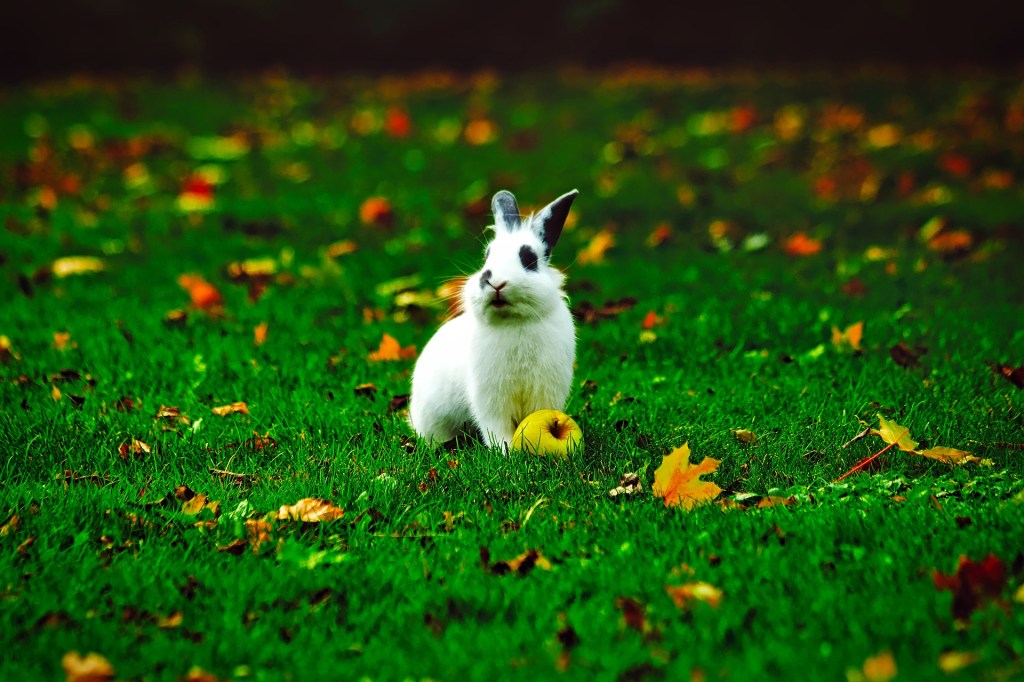
Myth #4: Rabbits don't require much space.
False! Rabbits are active and need plenty of space to roam if they are to live healthy, happy lives. Rabbits that are kept in small cages tend to develop behavioral and health problems associated with confinement, such as aggression and obesity, among others.
It is important to note that many small breeds of rabbit - Dwarfs and Lionheads, for example - actually require more space than larger breeds do.
Myth #5: Rabbits don't need veterinary care.
This is not true. Rabbits DO require regular veterinary care. While they do not need vaccinations, rabbits are prone to certain health problems.
As prey animals, they disguise weaknesses very well, so without regular veterinary care, they can succumb to injuries and illnesses seemingly out of nowhere.
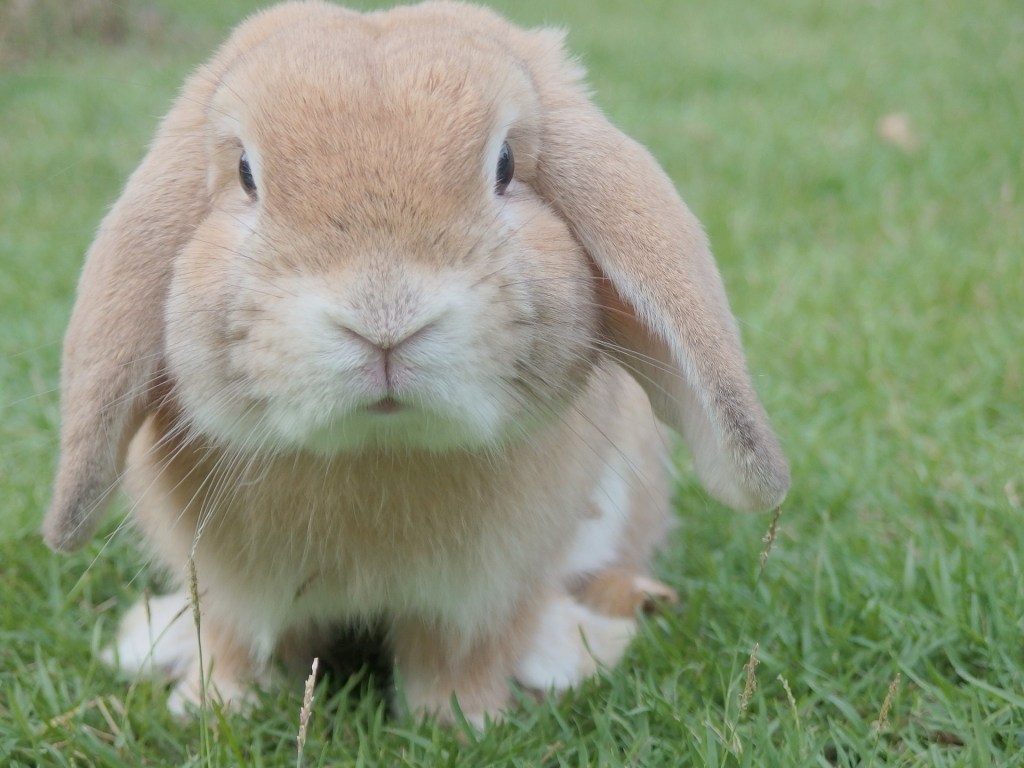
Myth #6: Rabbits smell.
Any pet that is not kept clean and are cleaned up after will smell. That being said, rabbits are naturally tidy animals.
When spayed or neutered, they are easy to litter box train, and if the litter box is cleaned daily, there will be little to no odor.
Myth #7: Rabbits don't need much attention.
Not true. A rabbit needs to be monitored daily. Like other pets, rabbits can get themselves into trouble or suffer medical emergencies. In addition, if a rabbit goes for more than 12 hours without eating, its body will release toxins that may prove lethal.
In short, a rabbit does require regular interaction and monitoring.
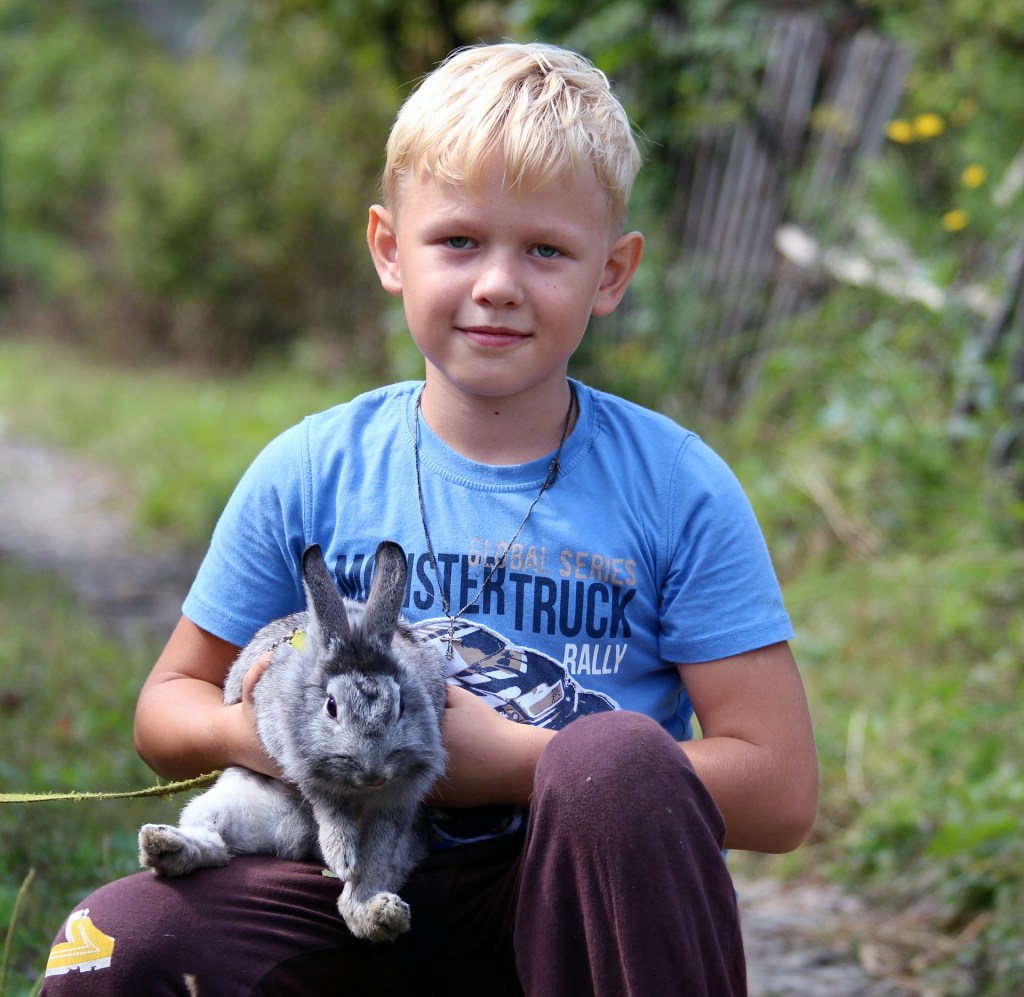
Myth #8: Rabbits are perfect pets for kids.
False! If children are taught how to interact properly with rabbits, rabbits can be good pets for them. However, they are not ideal pets for children.
Rabbits are easily stressed. Loud and energetic children may frighten a rabbit and inadvertently cause a rabbit to bite or scratch in order to protect itself. It is crucial to teach children how to interact respectfully with pets of any species, including rabbits.
Click here to learn more about rabbits as pets. And remember, if you're thinking of adding a rabbit to your family, adopt, don't shop. You'll be saving a life.
For rabbit supplies, visit Chewy.
Do you have a rabbit? Show us in the comments section below!
WATCH NOW: Rabbit Binkies Are Expressions of Joy
